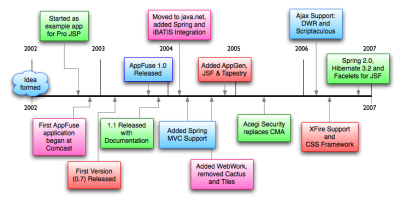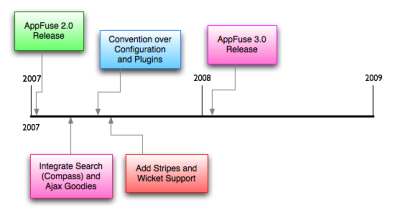I recently received the following e-mail from the founders of Nabble:
You are the first person (literally) to recognize the value of Nabble.
So far, Nabble has been well received. But it needs more users. There
are a lot of open source projects archived on Nabble, but how do we go
about letting people know about us? We would like project owners to link to
us and skin us like you did with appfuse, but I am not sure how to do
it. You know many people in the open source world, so we would really
like to hear your thoughts and advice.
For example, should I go and announce Nabble on a project list? If so,
should I do it on the dev list or user list? Is this considered OK or
spam? Or should I contact the mailing list owner by private email?
What nabble feature do you consider most useful to the project owners?
My response to the first paragraph:
I would suggest e-mailing project owners and pointing out projects
like AppFuse and Maven that've taken the time to "skin" their forums.
I'm guessing you could get some real good traction at Apache because
they like to keep everything on mailing lists. People like your forums
because they can post (and subscribe to) a single message. AFAIK, you
can't do this with any other mailing list archive. Maybe you could
write an article for TSS or InfoQ that tells all the features and
highlights projects that are using it.
As far as announcing Nabble on a project list, I said:
I would do it on the dev list, but sending private e-mail is probably
OK as well. I don't think it will be perceived as spam. Sending it
to the dev list might skip a step for the project founder. You could
also offer to "skin" forums for folks - so it looks like their project
sites. I think the most useful feature for end-users is search and
easy browsing. It's *much* better than the archiving/browsing tool
that Apache uses.
One thing that might attract for folks is vanity URLs. I don't know
if it's possible, but something as simple as appfuse.nabble.com might
be attractive to some people, or having some sort of path-based URL,
for example archive.nabble.com/java/java.net/appfuse. That way it'd
be easier for folks to "guess" the URLs of mailing list archives.
What's your advice? What should Nabble do to get more users? Maybe if folks new about Nabble's RSS feeds, they'd use it more. I'm currently subscribed to Maven, Wicket, Shale and Stripes, just to name a few.






